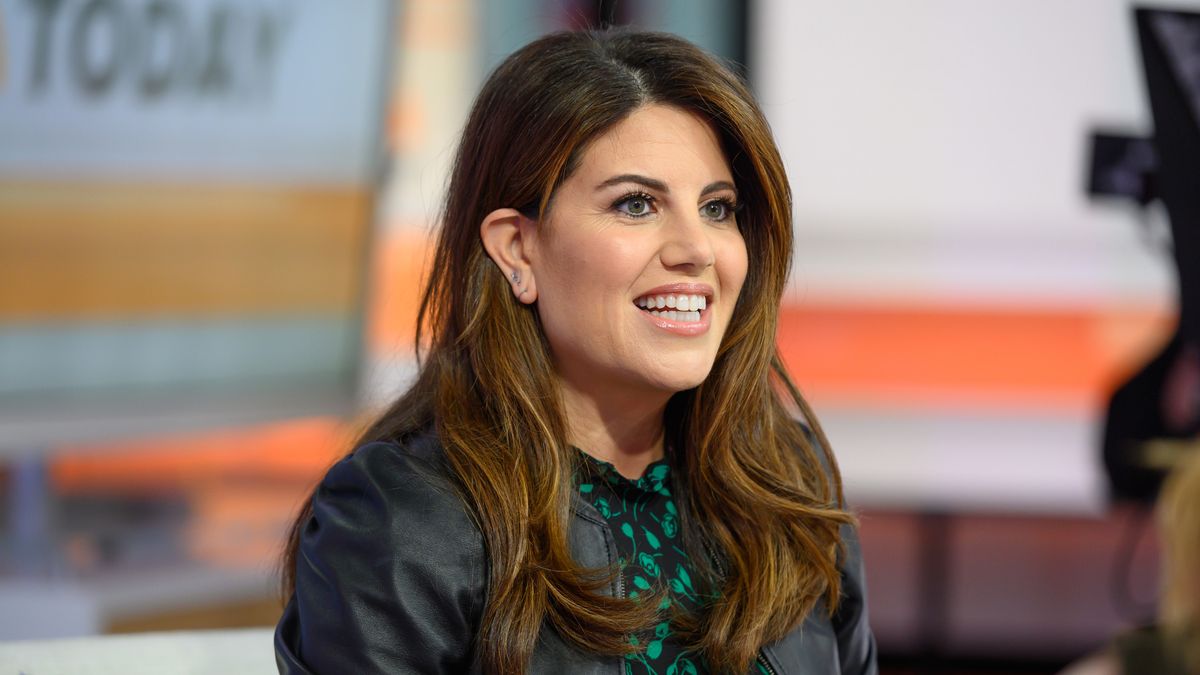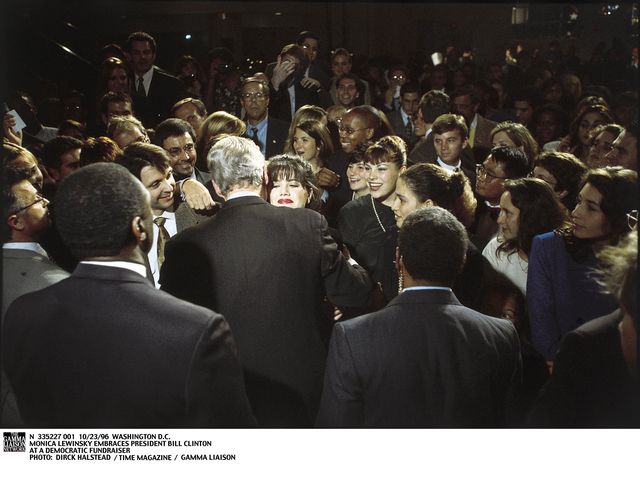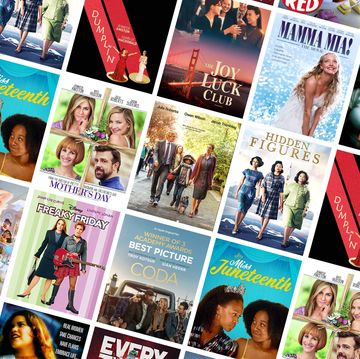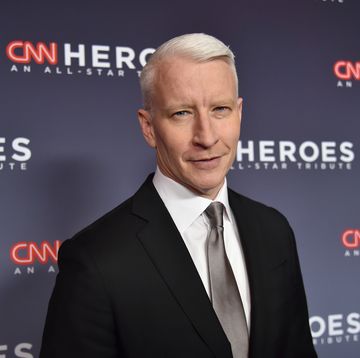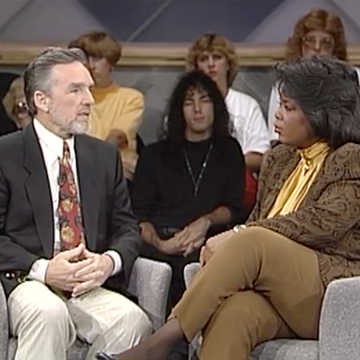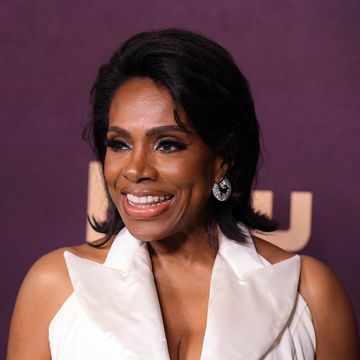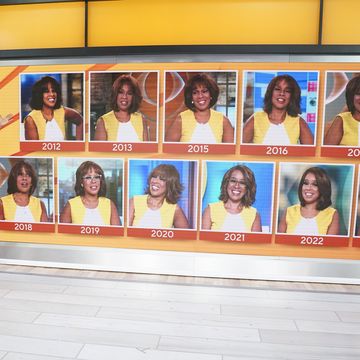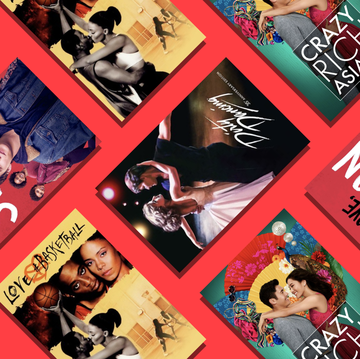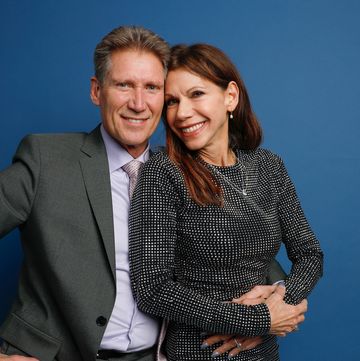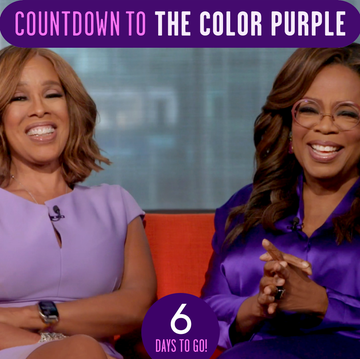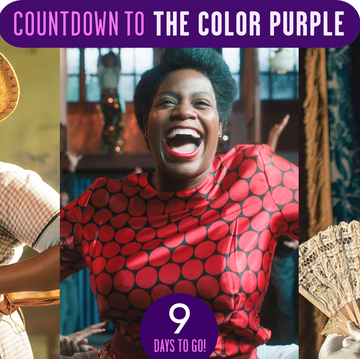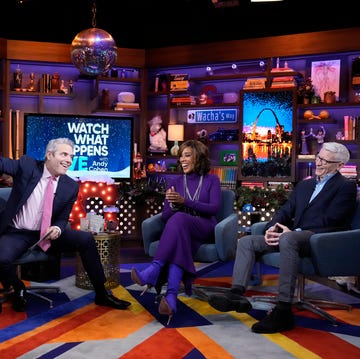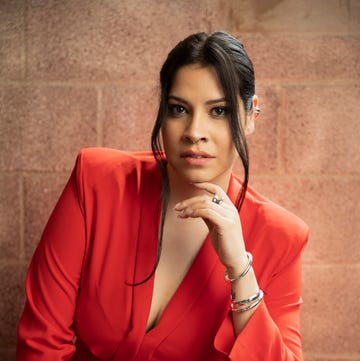"He was my boss. He was the most powerful man on the planet. He was 27 years my senior, with enough life experience to know better. He was, at the time, at the pinnacle of his career while I was in my first job out of college," Monica Lewinsky, now 48-years-old, wrote in a 2018 Vanity Fair essay.
In the late 1990s, Lewinsky was at the dawn of her adult life, barely old enough to drink in a bar. Yet her name was a go-to punchline in tasteless late-night monologues, her character ridiculed in mainstream media and by private citizens, all because she'd been one half of the most famous extramarital affairs in U.S. political history.
As former Secretary of State Hillary Clinton recalls in Hulu's Hillary documentary, when news of Lewinsky's affair with President Clinton initially broke, he vehemently denied it privately and publicly ("I did not have sexual relations with that woman," he infamously claimed in a January 1998 news conference). Ahead of the first news reports, President Clinton told his wife it was all a big mix-up. "He said 'there's nothing to it, it's not true, I may have been too nice to her and may have paid her too much attention,'" Clinton said in Hillary, adding that she found this explanation "convincing" at the time.
Lewinsky signed an affidavit stating she and President Clinton never had a sexual relationship (she has claimed that he'd advised her to do so), and President Clinton denied it in a deposition for a separate legal suit that same January. It didn't take long for President Clinton's version of events to unravel, though, and by February of 1998—with help from headline-making, secretly-recorded confessions Lewinsky made to her former coworker Linda Tripp—it became clear that his indiscretions with his intern were a fact.
The details of their encounters became widely-known, from the stained blue dress to the cigar. As Lewinsky said in a 2015 TED Talk, "Overnight, I went from being a completely private figure to a publicly humiliated one worldwide. I was patient zero of losing a reputation on a global scale almost instantaneously."
The upcoming series Impeachment: American Crime Story attempts to share her experience, rather than perpetuating the media myth. "It feels like in 1998, our culture created a second Monica Lewinsky that doesn't bear any relationship to the real person," executive producer and writer Sarah Burgess said during a Television Critics Association (TCA) press conference, per Entertainment Weekly. Here's how the "real" Lewinsky has handled the aftermath since and what she's doing now.
She worked with the creators of Impeachment: American Crime Story.
Lewinsky's side of the story is being told in FX series Impeachment: American Crime Story, out September 7, 2021. Lewinsky collaborated with the show's creators to make sure the drama reflected her experiences.
Executive producer Ryan Murphy knew that the woman at the center of the true story should be involved in the project. “I told her, ‘Nobody should tell your story but you, and it’s kind of gross if they do," Murphy told The Hollywood Reporter. "If you want to produce it with me, I would love that; but you should be the producer and you should make all the goddamn money."
Speaking at the TCA, producer Brad Simpson said Lewinsky was the "main consultant" in rendering details about the affair, and she provided "specificity and veracity." Linda Tripp and Paula Jones, real-life figures depicted in the show, were not consulted (Tripp died in 2020). Beanie Feldstein (Booksmart), who plays Lewinsky said that Lewinsky's involvement impacted her approach to the role.
"When I received the scripts, I knew that every word that I was saying was approved and had been to Monica first... [The producers] would go through the scripts with her and [she would] give all her feedback and her notes. And by the time it got to me, I was sure that everything in there was something that she felt comfortable with, she felt was real to her life and represented her," Feldstein said, per Entertainment Weekly.
Simpson said Lewinsky especially wanted to ensure her relationship with President Clinton was depicted as being "mutual and consensual." Simpson said, "She had agency in it, unlike the way it was portrayed at the time. It was very important she retained her agency…there was a power dynamic that she couldn't see. She was too young and too in love."
She's making her own documentary, too.
Lewinsky is teaming up with Catfish host Max Joseph to make an HBO Max documentary. 15 Minutes of Shame explores the phenomenon of public shaming, much like the kind Lewinsky endured in the '90s and beyond. Announced in October 2019, 15 Minutes of Shame doesn't yet have a release date on HBO. Max
After 1998, Lewinsky had a handbag line, and hosted a dating show.
President Clinton was ultimately acquitted of perjury and obstruction of justice in his 1999 impeachment trial, keeping both his presidency and his marriage to Hillary. Meanwhile, there was no roadmap for Lewinsky in terms of what a woman in her early 20s should do next when she's become an international laughingstock. A 1998 Herb Ritts photo shoot for Vanity Fair seemed to only cement her negative image as "the Other Woman." (Maureen Dowd deemed the shots "pornography" in The New York Times in September of 1998, calling out Lewinsky's "bare shoulders" and "snug gingham shirt," while claiming that "it appears that there's one thing Monica has immunity from: brains.")
In the years since the scandal, Lewinsky's unusual life trajectory has led her down a few career paths. In 2000, her Clinton-related legal debt had reached 1.5 million dollars, she told the New York Times. She had a handbag line in 1999, and had a gig as spokeswoman for weight loss company Jenny Craig that same year. Lewinsky also made several TV appearances, and hosted a 2003 Fox dating show called Mr. Personality (like The Bachelorette or Love Is Blind, except all of the male suitors wore creepy masks).
She graduated from the London School of Economics in 2006.
Moving from D.C. to New York City offered Lewinsky a modicum of anonymity—or, at least, a lighter version of the relentless attention she received everywhere. To a point. "Even in New York, her reception is not always positive," Vanessa Grigoriadis wrote in a 2001 New York Magazine profile. "Not long ago, she was chased down the street by a group of men screaming epithets, and tabloids still report news like 'Monica eats potato chips,' 'Monica’s snuck out the kitchen door of Balthazar,' and 'Monica stuffs herself with crab cakes.'" The New York Post nicknamed her the "Portly Pepperpot," a jab at her weight.
In 2005, Lewinsky took a well deserved decade-long break from the public's relentless gaze, moving to London. She began attending the London School of Economics (a Telegraph headline from 2005: "Hello Boys! Freshers at LSE Brace Themselves for Monica"), earning a Masters of Science degree in social psychology. Her thesis sounds like it hit close to home: the title was "In Search of the Impartial Juror: An exploration of the third person effect and pre-trial publicity."
Today, Lewinsky is a vocal anti-bullying advocate.
“In 1998, I lost my reputation and my dignity...I lost my sense of self,” Lewinsky said in her 2015 TEDTalk, titled "The Price of Shame." “When this happened to me, 17 years ago, there was no name for it. Now we call it cyber-bullying.” Her remarks served as a plea to resist the urge to pile on, saying that “public humiliation as a blood sport has to stop."
For the past five years, Lewinsky has been delivering speeches on the harmful effects of bullying. She's also been a contributor to Bystander Revolution, an anti-bullying resource founded by MacKenzie Bezos, author and ex-wife of Amazon's Jeff Bezos.
In 2019, Lewinsky was interviewed on Last Week Tonight with John Oliver for their "Public Shaming" episode. "When millions of people feel the need to weigh in and do it, potentially, for years, the punishment can be vastly disproportionate to the offense," Oliver said. "And perhaps the best example of this is Monica Lewinsky." In the segment, Oliver pointed out a parade of jokes from Jay Leno that were particularly disgusting, including a fake Dr. Seuss book titled The Slut in the Hat.
Since the 1990s, there's been a somewhat more enlightened public shift in viewing how cruelly Lewinsky was treated during and after Clinton's impeachment trial. Author Erica Jong is among those who've since regretted how they spoke of Lewinsky back then. "It’s a terrible thing to have to survive—and I have far more empathy now," Jong told the Daily Beast in 2015.
The FX series hopes to create empathy by showing "that a real human being arrived in Washington and went through these experiences, understanding the pressures that she was under, the surreal experience she was in with this affair with the president, and then everything she went through as the story came out," Burgess said at TCA.
In Hillary, President Clinton kind of indirectly apologizes to Lewinsky, as well. "I feel terrible that her life has been defined by it, unfairly I think," he said. "Over the years, I watched her trying to get a normal life back again. But you gotta decide how to define normal.”
Lewinsky keeps a good sense of humor about her notoriety these days.
Monica Lewinsky's Twitter account, created when she returned to public appearances in 2014, describes her as an "anti-bullying activist, TEDTalks giver, Vanity Fair contributor, rap song muse, ex-beret model, emotional daredevil, knitter."
A Democrat, Lewinsky often tweets about politics, and serves up the occasional hilarious comeback. In response to a 2018 tweet from Florida senator Marco Rubio that began "Although written by intern at Politico..." Lewinsky chided, "blaming the intern is so 1990s."

Samantha Vincenty is the former senior staff writer at Oprah Daily.
